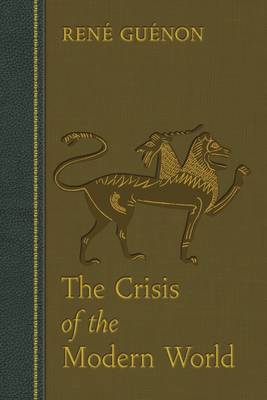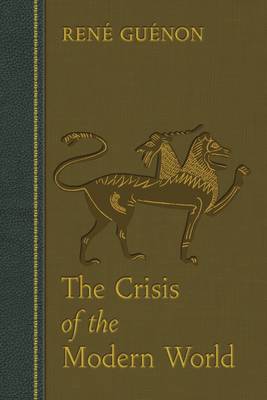
- Afhalen na 1 uur in een winkel met voorraad
- Gratis thuislevering in België vanaf € 30
- Ruim aanbod met 7 miljoen producten
- Afhalen na 1 uur in een winkel met voorraad
- Gratis thuislevering in België vanaf € 30
- Ruim aanbod met 7 miljoen producten
Omschrijving
René Guénon (1886-1951) was one of the great luminaries of the twentieth century, whose critique of the modern world has stood fast against the shifting sands of intellectual fashion. His extensive writings, now finally available in English, are a providential treasure-trove for the modern seeker: while pointing ceaselessly to the perennial wisdom found in past cultures ranging from the Shamanistic to the Indian and Chinese, the Hellenic and Judaic, the Christian and Islamic, and including also Alchemy, Hermeticism, and other esoteric currents, they direct the reader also to the deepest level of religious praxis, emphasizing the need for affiliation with a revealed tradition even while acknowledging the final identity of all spiritual paths as they approach the summit of spiritual realization.
It is no longer news that the Western world is in crisis, a crisis that has spread far beyond its point of origin and become global in nature. Although first published in 1927, The Crisis of the Modern World bears reprinting unaltered and unannotated at the beginning of this new millenium, for it rests upon principles that stand outside-indeed determine-the conditions of time and space. What few particular illustrative points may be "dated" will be readily identified and put in perspective by those readers for whom Guénon intended the book. In this very important work, which has become a classic, Guénon analyzes the crisis of our times from the metaphysical point of view; that is to say it is not diagnosed as a degradation of morals, which is a perversion of the will, but as the degradation of knowledge, which is a perversion of the intellect. Moreover, such intellectual analysis of present disorders is not merely a legitimate supplement to the moral approach with which we are more familiar: it is fundamentally necessary, and has been carried out in this book with profundity and penetration. Here, Guénon ruthlessly exposes the "Western deviation" its loss of tradition, its exaltation of action over knowledge, its rampant individualism and general social chaos. His response to these conditions was not "activist," however, but purely intellectual, envisioning the coming together of Western intellectual leaders capable under favorable circumstances of returning the West to its traditional roots (most likely via the Catholic Church), or under less favorable circumstances of at least preserving the "seeds" of Tradition for the time to come.
Specificaties
Betrokkenen
- Auteur(s):
- Vertaler(s):
- Uitgeverij:
Inhoud
- Aantal bladzijden:
- 136
- Taal:
- Engels
- Reeks:
Eigenschappen
- Productcode (EAN):
- 9780900588242
- Verschijningsdatum:
- 1/01/2001
- Uitvoering:
- Paperback
- Formaat:
- Trade paperback (VS)
- Afmetingen:
- 152 mm x 232 mm
- Gewicht:
- 213 g

Alleen bij Standaard Boekhandel
Beoordelingen
We publiceren alleen reviews die voldoen aan de voorwaarden voor reviews. Bekijk onze voorwaarden voor reviews.








